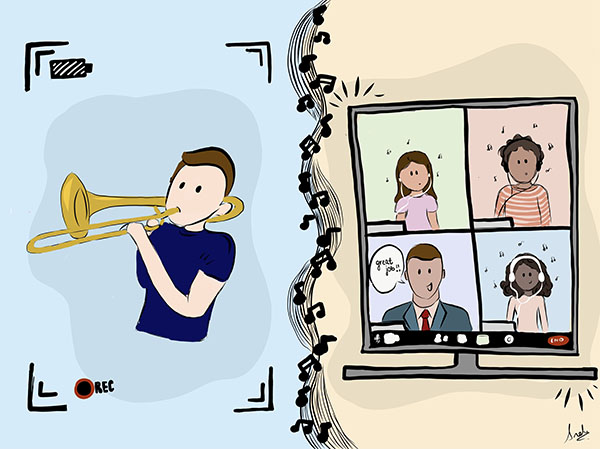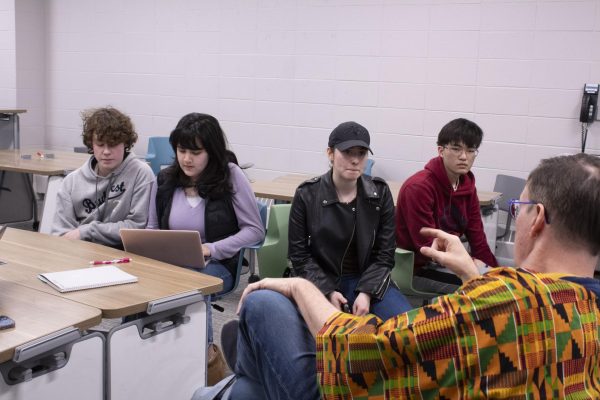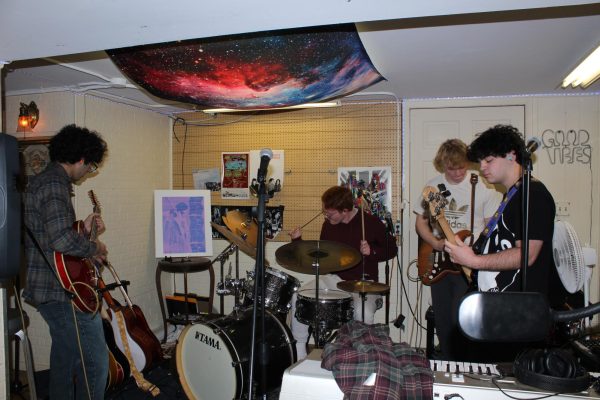Jazz fest strikes a chord by spreading musical knowledge

Illustration by Sneha Augustine
March 19, 2021
For 44 years, GBS has hosted the annual North Shore Jazz Festival.
What started as a small event has become a region-wide festival with dozens of schools attending each year. In previous years, the festival was a competition between the schools involved and gave students the opportunity to connect with bands in the region. This year, Band Director Brian Boron said the organizers did what they could to preserve the spirit of the festival by focusing on educational clinics.
Boron explained that clinics were conducted by having participants submit recordings of their pieces ahead of time. Afterwards, the participants were given live feedback on their work by jazz musicians from the North Shore on a Zoom call. Senior McKayla Reuter, who has been involved in the festival for three years, said that clinics are an opportunity to gain musical knowledge and hear from musicians in the community.
“They act like judges and help run some clinics after each performance, so they help every single band improve on their skills,” Reuter said. “They give [musicians] constructive criticism and help us all become better. We’re very lucky that they take time out of their days to come help us young musicians.”
Additional changes to the traditional format of the festival included the decision to do away with the competition, Boron said. This brought the addition of an extra clinic led by a local musician to enhance the students’ learning experience.
“We [tried] to identify what’s important and what we want to accomplish with the festival: giving students a chance to work with professional musicians, making it educational and making sure that our clinicians have some experience working with students to know how to convey their messages,” Boron said. “[We worked] to make sure that we’re achieving those goals.”
The festival was entirely online and much of the social aspect of the event was lost. For some students, this also meant the loss of the feeling of community. Senior Declan Hellerman explained the impact of virtual band events on the community of musicians.
“There are definitely differences, like not feeling that same energy when you’re with other people and playing instruments,” Hellerman said. “It was a different vibe and it influences the way you think about music.”
Likewise, junior Josh Patt acknowledged the many differences within the music community this year, but was optimistic about the festival. He believed the overarching ideas of promoting and celebrating jazz music were still preserved even with the changes.
“Some of the camaraderie between schools was definitely lost,” Patt said. “But as far as just the spirit of it, I still feel like it’s there.”
Even with these differences, the festival was still a success, Hellerman said. Besides a few issues with Zoom calls that come with the virtual format, things went smoothly.
“In general, everything worked out,” Hellerman said. “I expected the clinics with the expert musicians to be very informative and insightful, and they definitely were. It’s hard to call this a legitimate Jazz Fest because the bands aren’t there in real life, but I think it went as well as it could.”








